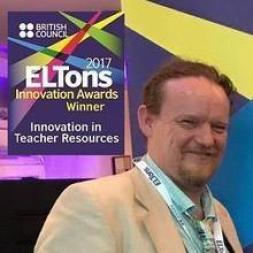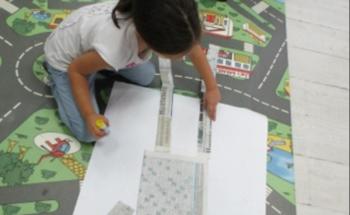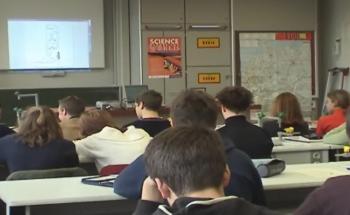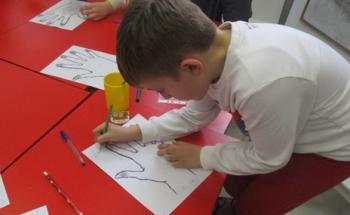
English for Teachers
This course is aimed at teachers who are working with young learners through the medium of English as a foreign language from the age of 2 to 11. The course is for teachers who want to improve their personal English competence in and out of the classroom.
Description
The course content takes its impetus from two main sources. Firstly, the principles behind the practice are from CLIL methodology where we look at language of learning, and we explore 'conceptual routines' and consider classroom dynamics and procedures. Secondly, another influence on the content is the practice at Anglia School where our course is hosted.
Alongside the theoretical morning input sessions, participants are invited to join in lesson activities with our learners and discuss the language focus of the lesson back in the training room. Additionally, participants will be given tasks to prepare and perform specific texts such as their chosen story and picture book. Teachers will 'perform' their text the next day and where appropriate tell the story to our Anglia School children.
The 'learning by doing' philosophy of CLIL is at the heart of the English for Teachers course. We 'do' the lessons, the materials, the activities in preparation for the classroom and in embarking on this journey course participants naturally 'do' English. The language is semi-scripted by Keith and colleagues are given ample comfortable time and space to get to grips with curriculum and classroom language.
Anglia School is a recognized centre for teacher development within the Erasmus+ programme and we are delighted to host teachers who are looking for ideas from our practice to take back to their own preprimary schools. Additionally, we work immersively with our children and so provide the perfect environment for visiting teachers to improve their own level of English.
Learning objectives
Implementing CLIL in Preprimary and Primary Education: Studying examples of good practice.
Participants will become familiar with teaching and learning skills in pre-primary and primary CLIL through the medium of English. The focus here is developing language skills for functioning in the early years classroom.
Participants will become familiar with ‘learning by doing’ through experience of classroom practice at Anglia School and map the language we use to provide these experiences. There is an initial focus on the three dimensions of CLIL and in particular on language as well as overarching principles in the early years curriculum.
Participants will discuss and practice skills in early learning in English as a foreign language, with examples from functions in the Anglia School curriculum and explore language needed for delivering the curriculum through a foreign language.
Participants will explore story and non-fiction in the curriculum and ways, means and methods for young children to experience concepts presented through these ‘texts’. In addition, participants will consider content presented through other media (multimedia, objects, realia etc). While examining these media and others, teachers will practice and get feedback on their performance in these genre and media.
Participants will discuss how to support learners in their spoken output by using their own English as a model for early language learners, and the content is explored in all its forms in the young learner curriculum for the purpose of encouraging modelling and meaningful practice of spoken English.
Methodology & assessment
Feedback is given on these resources and a lot of input and help from course tutor, Keith Kelly and the ultimate goal of the course is the collation of a collection of early years resources which have the dual aim of providing participants with materials they can use back in their own classrooms but also develop their own English language skills.
The course continues with an examination of expectations and matching these to the course programme and, more generally, Anglia School methods including our focus on ‘up-down’ dynamics. Participants will see and work through pre-primary CLIL activities which range from high energy active dynamics to lower energy tasks.
Participants will be presented with samples lessons, with an examination of language in the session plans which they keep to take home.
Colleagues are invited to consider the language demands of their curriculum contexts and build their confidence as to how they can provide more language support for their learners.
The course methodology focuses strongly on identification of conceptual structure in input content and techniques for exploiting this structure to support learners while at the same time making salient the language these concepts demand which works as a focus for their own personal language development.
Participants have time to focus on story in their own contexts including the opportunity to produce resources to take home for use with a specific focus on language develop for their learners while practicing their own communication skills.
Certification details
The Anglia School certificate for Putting CLIL into Practice carries a detailed summary of the content to be covered, the number of days and hours of training attended and is signed by Keith Kelly and stamped with the school stamp.
Pricing, packages and other information
-
Price:400Euro
Additional information
-
Language:English
-
Target audience ISCED:Early childhood education (ISCED 0)Primary education (ISCED 1)Lower secondary education (ISCED 2)
-
Target audience type:TeacherStudent TeacherHead Teacher / Principal
-
Learning time:20-25 hours
Upcoming sessions
Past sessions
More courses by this organiser

Intercultural Communicative Competence for Young Learners through CLIL

Putting Secondary CLIL into Practice


